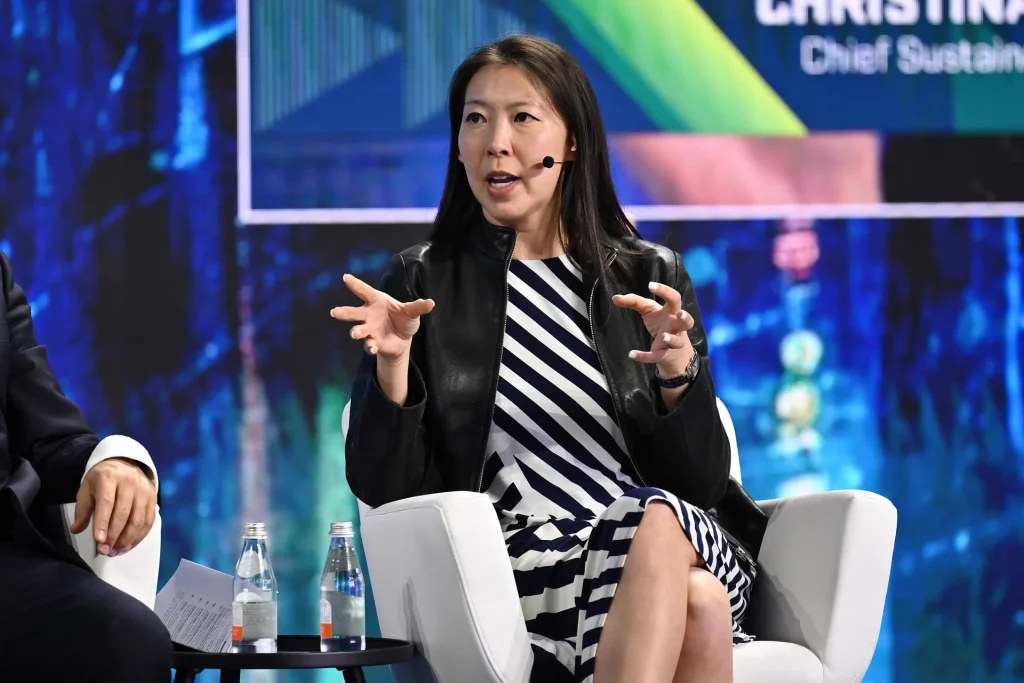[SINGAPORE] South-east Asian markets that have a renewable energy source might have a leg up in attracting American tech giant IBM to set up data centres.
While having renewable energy is not the only determining factor, it is an important criterion that the technology company considers when assessing where to locate its data centres, said its chief sustainability officer Christina Shim in an interview with The Business Times.
When asked whether South-east Asian markets would be more attractive as a location for IBM to set up its data centres if it were to green its energy mix, Shim said: “Could it help? Absolutely. I think we’re all aligned, and making sure that this is an important factor as part of the decision. But it would have to be balanced out with all the other factors.”
Shim noted that renewable energy is more accessible in some regions than in others.
This is partly why the technology company had set a target of sourcing 90 per cent of the electricity it consumes worldwide from renewable sources by 2030, though it would like to push past 90 per cent if possible. It has an interim goal of 75 per cent by this year, which Shim said it is “on track, if not a little early” in meeting.
IBM has also set a target of achieving net zero greenhouse gas emissions by 2030, with an interim goal of reducing its emissions by 65 per cent by this year against its 2010 levels.

Friday, 12.30 pm
ESG Insights
An exclusive weekly report on the latest environmental, social and governance issues.
If the company does decide to set up a data centre in a location where there are no renewable energy sources, then it would have to balance that out with the rest of its portfolio of data centres, Shim added.
The company currently operates more than 60 data centres across the globe, out of which about 10 are in Asia-Pacific.
“If the region here is able to diversify its energy mix more by that point, and we are trying to keep in touch with our global real estate, (as well as) what’s happening with government and regulatory affairs regionally… we are keeping on top of any sort of planned investment in those areas to see how we can better shift and evolve with what’s happening on the ground,” Shim added.
Besides whether a location has renewable energy source, Shim said, data centre management efficiency is also important.
“Can you also improve the optimisation of the data centre itself, and using the right technology internally to be able to do that? That’s also pretty powerful,” she added.
Shim also said that IBM will continue to embed sustainability into its business, even though climate change has been deprioritised by the current United States administration under President Donald Trump.
Integrating sustainability is not just about being a good corporate citizen, but is “fundamentally good economics for the business and its foundation for growth”, Shim added.
“It shows increased innovation. It’s additional revenue generation. It’s good for talent attraction… Regardless of all the changes, we are focused on maximising long-term value for our clients, for our partners, for us.”
For example, with more businesses looking at incorporating artificial intelligence (AI) into their business operations, there is more work looking at how AI models can be trained more efficiently, so that it is more cost-efficient for companies to use such technologies.
Shim sees opportunities for AI and sustainability in the area of improving ESG data in Asia. Besides helping to collate and make sense of hundreds of data points that large companies would have, it could also help support language challenges in the region.
Besides sustainability reporting, AI can also be used to identify per- and polyfluoroalkyl substances – which are chemicals that are extremely persistent in the environment and human bodies – in a company’s supply chain.
“How do you identify where they are in your supply chain, in your manufacturing, in your products, and then how do you make sure that you have the right sustainable replacements to make it safer for your consumers, for your customers – not just from a regulatory perspective, which is increasingly going to be enforced, but also from a consumer safety perspective,” she said.
“That is something that will also be very relevant in this region just because of how much manufacturing happens here that goes globally.”

